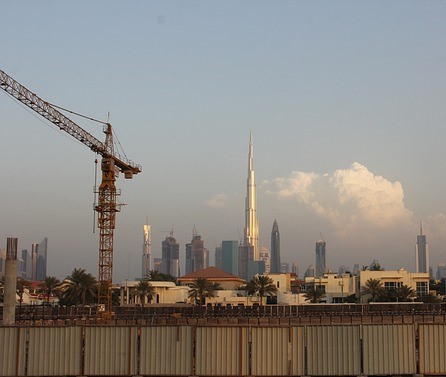Why SMEs continue to be the driving force behind many Arab economies
- SMEs represent 92% of companies in the Arab region and employ up to 65% of the workforce depending upon the country
- Startup Chile offers an enticing model for Arab governments to support SMEs as they shift towards the knowledge economy
Abu Dhabi Chamber of Commerce and Industry (ADCCI) recently sat down with Wes Schwalje, COO of Tahseen Consulting, to discuss the role of small and medium sized enterprises (SMEs) in Abu Dhabi and the region’s development.
ADCCI: How critical are SMEs to the development of a sustainable economy?
Schwalje: SMEs are not just important to regional economies – across the region SMEs are the economy. It is impossible to separate the industrial structure of the Arab World from a discussion about sustainability. Tahseen Consulting conducted a study in 2012 which showed that, if the European Union’s definition of what constitutes an SME is applied to the region, SMEs represent 92% of companies in the Arab region with micro firms <10 employees making up 25%, small firms of 10-49 employees making up 44%, and medium-sized firms with 50 – 250 employees making up 23% of firms.
Across the region, these firms employ up to 65% of the workforce depending upon the country.
In Abu Dhabi, 95% of the total enterprise population are SMEs which employ 24% of the workforce. While in Dubai, SMEs make up 95% of the enterprise population and employ 42% of the workforce. At the national level, SMEs constitute 94% of the total enterprise population and employ 86% of the workforce.
ADCCI: In particular, which Abu Dhabi sectors would benefit from more SME participation?
Schwalje: The Khalifa Fund estimates that 73% of SMEs in the UAE are in the trade and retail sector, 11% are in services, and 11% are in manufacturing. The Global Entrepreneurship Monitor shows that the UAE has one of the lowest rates of total entrepreneurship activity of innovation-driven economies, and only 2.3% of new ventures are medium-tech or high technology ventures. So technology is a key sector for potential SME growth.
It is also important for Abu Dhabi to enhance enterprise creation in the priority sectors highlighted in the Economic Vision 2030. A few Emirates are introducing interesting programs in which large firms in priority economic sectors are working to upgrade SMEs to indigenize their supply chains.
These initiatives, which were pioneered by the extractive sector, hold significant promise in building a strong SME base which can not only generate long-term benefits for larger parastatals in the UAE but also broaden the SME base from its traditional focus on trade and retail. Trade and retail cannot provide the high skill, high wage jobs that the UAE aspires to provide for its citizens and residents. Only knowledge-based industries have the potential to do this. However, SMEs in priority knowledge-based industries can’t rely on government contracts alone – they must also be innovative and globally competitive.
ADCCI: What could encourage more SMEs to set up shop in the capital?
Schwalje: Several of Tahseen Consulting’s clients have become interested in the ongoing experiment of Chile in implementing Startup Chile. This initiative has a mission to attract early stage, high-potential entrepreneurs to bootstrap their startups in Chile. It is similar to what the Dubai Future Accelerators initiative is trying to achieve but on a much larger scale.
To date, Startup Chile has invested $40 million in accelerating 1,309 startups.
These firms are now worth $1.3 billion, have a survival rate above 50%, and created 5,162 positions worldwide. In essence, Chile has achieved a 34x return on its investment while also positioning itself as a global startup and SME hub. We expect to see a lot more Startup Chile type initiatives in the GCC. So national acceleration programs and supply chain indigenization are key strategies that could help attract SMEs to Abu Dhabi and position it as a global startup hub. Such programs would be in addition to resolving the bureaucratic obstacles and barriers to operating an SME in the UAE.
It is not enough to gauge progress relative to the quite methodologically flawed World Bank Doing Business Rankings. It is typically the processes which are not measured by such indices that cause SMEs headaches.
One particular challenge that comes to mind is cost businesses in the UAE pay for internet – at an average price per megabyte of download speed of approximately $18, the common entry-level fiber broadband packages offered in the UAE cost 5 times more than similar packages offered by the leading countries in the World Bank’s Ease of Doing Business Ranking.









































